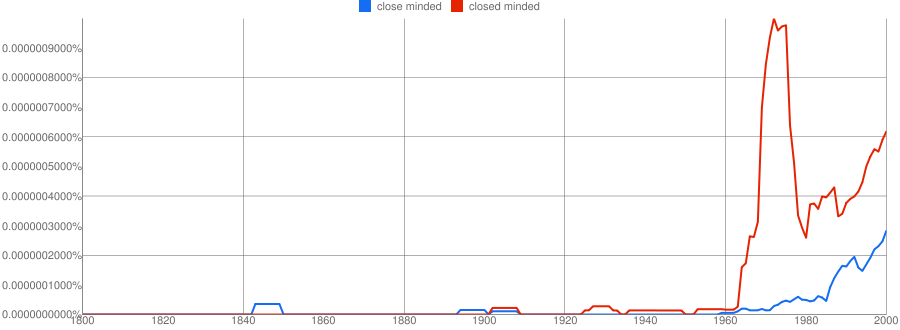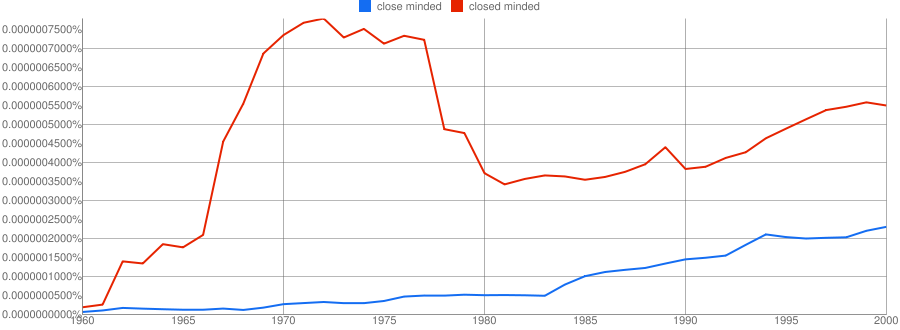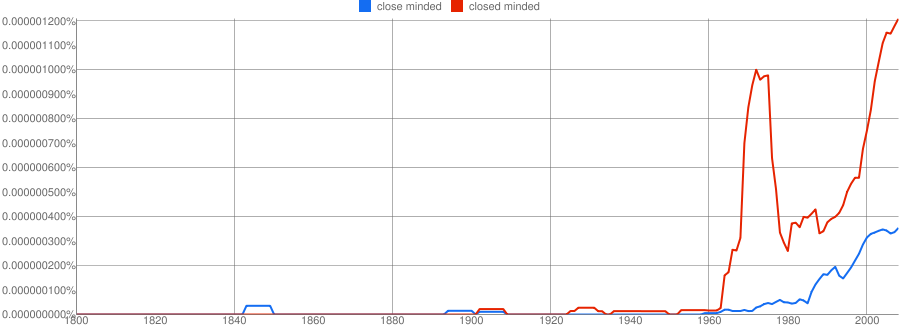This good answer ended up with a lot of comments about whether the phrase is "close-minded" or "closed-minded." Since this debate seems to have reasonable arguments on both sides, I thought a new question would be prudent.
Personally, I think it is close-minded, the opposite of open-minded, and that both of these (open and close) use the intransitive forms of these verbs. In another words, I think the mind opens or the mind closes, as opposed to the mind being opened or closed.
But I thought the comments raised some interesting points about the word formation, and I may have to reconsider my opinion.
Is it "close-minded" or "closed-minded"?
EDIT: The NGrams are nice to demonstrate usage, but what I would like to know is more along the lines of why rather than which.







